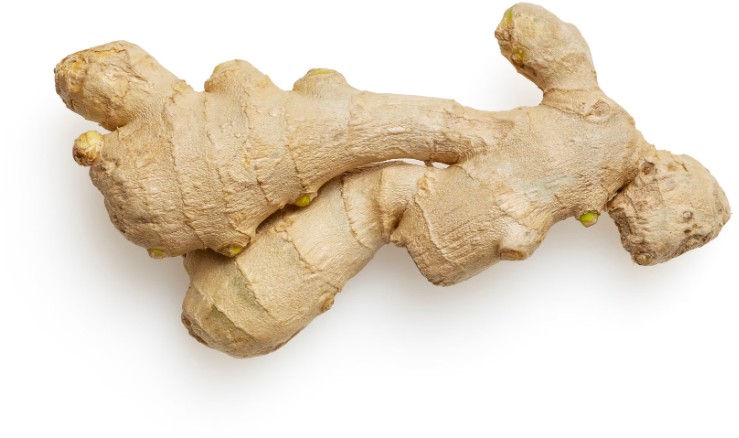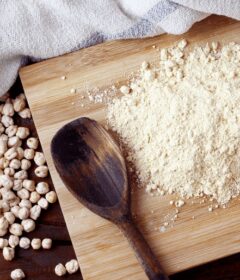The Ultimate Guide to Ginger Substitute: Your Comprehensive Option List

In the bustling world of culinary arts, ginger stands out for its distinctive flavor profile that ranges from spicy to slightly sweet and its myriad health benefits. Often hailed as a superfood, ginger adds a refreshing kick to dishes and drinks alike. However, there may come a time when you find your kitchen devoid of this versatile ingredient. Fear not, as several commendable substitutes can step in to save your dish. In this in-depth guide, we explore the world of ginger substitutes, ensuring your culinary creations remain top-notch, even in the absence of ginger.
https://rawspicebar.com/blogs/spices-101/ginger-substitute
Table of Contents
- Understanding the Unique Qualities of Ginger
- Best Ginger Substitutes for Cooking and Baking
- Selecting the Right Substitute Based on Your Dish
- FAQs
Understanding the Unique Qualities of Ginger
Before diving into the substitutes, it’s crucial to appreciate the unique characteristics that make ginger irreplaceable in many recipes. Ginger, primarily known for its aromatic, spicy, and slightly sweet flavor, is a staple in Asian, Indian, and many Western kitchens. Its versatility allows it to shine in an array of dishes from savory to sweet. Moreover, ginger boasts significant health benefits, including anti-inflammatory properties and digestive aid.
Best Ginger Substitutes for Cooking and Baking
Fresh Turmeric
- Profile: Fresh turmeric shares a similar appearance and texture to ginger. Its flavor, while more earthy and less spicy, can mimic the warmth of ginger.
- Usage: Ideal for soups, curries, and marinades.
Allspice
- Profile: Allspice offers a combination of clove, cinnamon, and nutmeg notes, which can replicate ginger’s warmth in recipes.
- Usage: Best suited for baking, such as in gingerbread recipes.
Powdered Ginger
- Profile: If fresh ginger is what you’re missing, powdered ginger can provide a similar flavor profile, albeit less potent.
- Usage: Versatile, but proceed with caution in recipes that call for large amounts of fresh ginger.
Galangal
- Profile: Galangal is closely related to ginger and shares its spicy kick, although it’s more citrusy and pine-like in flavor.
- Usage: Great for Thai and other Southeast Asian dishes.
Mace
- Profile: Mace is the outer covering of nutmeg seeds and has a warm, spicy, and slightly sweet flavor.
- Usage: Use cautiously as a ginger substitute in sweet dishes.
Cardamom
- Profile: Cardamom brings a unique, intensely aromatic flavor that is both spicy and sweet, much like ginger.
- Usage: Works well in both savory and sweet dishes.
Selecting the Right Substitute Based on Your Dish
The key to choosing the right ginger substitute lies in understanding the role ginger plays in your recipe. For savory dishes, such as curries or stews, fresh turmeric or galangal will maintain the desired warmth and depth. When baking, allspice or mace can impart a similar spicy sweetness that ginger provides.
Experimentation Is Key
Don’t be afraid to experiment with different substitutes to discover what works best for your taste buds and recipes. The proportions may need tweaking, as substitutes can vary in strength and flavor intensity compared to ginger.
Consider the Health Benefits
If you’re using ginger for its health benefits, such as aiding digestion, consider incorporating other ingredients with similar properties, like peppermint or fennel, into your dish independently of the flavor substitute.
Sustainability in Cooking
Embracing substitutes not only saves your dish but also encourages a sustainable approach to cooking, making the most of what you have on hand without compromising on flavor or quality.
FAQs
Q1: Can I substitute ground ginger for fresh ginger in equal amounts?
A1: No, the flavor potency differs between the two forms. As a general rule, use 1 teaspoon of ground ginger to replace 1 tablespoon of fresh ginger, adjusting to taste.
Q2: Are there any substitutes for ginger in ginger tea?
A2: Yes, for a ginger tea substitute, try using lemon, mint, or lemongrass. These ingredients can provide a refreshing taste, though the spicy kick will be different.
Q3: How do I substitute fresh turmeric for ginger?
A3: Fresh turmeric can be used in a 1:1 ratio as a substitute for ginger, but keep in mind that turmeric is less spicy and more earthy.
Q4: Can cardamom replace ginger in all recipes?
A4: While cardamom can replace ginger in many dishes, especially baked goods, its intense flavor may not be suitable for all recipes. It’s best used in dishes where its unique taste can shine without overpowering other flavors.
In conclusion, while ginger’s unique flavor is unmatched, a world of substitutes awaits to fill its shoes when needed. Whether you’re cooking a savory meal or baking a sweet treat, there’s a ginger substitute that can meet your needs. Experimentation and a sense of adventure in the kitchen are your best tools for discovering the perfect replacement. By embracing these alternatives, not only can you save your dish, but you also open the door to new flavors and culinary experiences.




